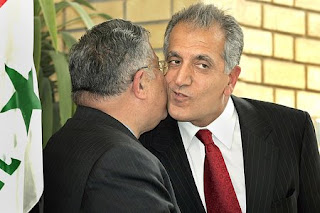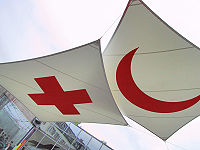The United Nations announced the year 1994 as the International Year of Families. The announcement was a response to changing social and economic structures, which affected, and still affect, the structure and stability of families in many regions around the world. Ever since 1994, May 15th has been celebrated as the International Day of Families, in order to remind all individuals, businesses, and governments alike that families are the center of society and provide a supporting, stable home for people of all ages.
Ever since 1994, May 15th has been celebrated as the International Day of Families, in order to remind all individuals, businesses, and governments alike that families are the center of society and provide a supporting, stable home for people of all ages.
Here are some primary points regarding family that the United Nations Social Policy and Development Division list in their mission statement:
– The integration of a family perspective into policy-making at the national, regional and international levels must be promoted
– Family research and diagnostic studies need to be supported
– There must be continuous dialogue with Governments, civil society and the private sector on family issues
– Coordination on family policies and programmes within national governments and within the United Nations system will be encouraged and supported
Policy meetings for public officials, exhibitions and organized discussions to raise awareness of the annual theme, educational sessions for children and young people, and the launch of campaigns that support families are common activities on the International Day of Families.
Although the definition and meaning of family varies greatly from one culture to another, and from one person to the next, family is a universal unit that all of us can relate to, in one way or another. Happy International Day of Families to you all!
Also in May:
World No-Tobacco Day – May 31st
International Day for UN Peacekeepers – May 29th
Africa Day – May 25th
The Day of Cyrillic Alphabet – May 24th
International Day for Biological Diversity – May 22nd
Cultural Diversity Day – May 21st
Cultural Diversity Day: A Special ‘Hello!’
World Day Against Homophobia – May 17th
World Telecommunications and Information Society Day – May 17th
Mastering the Art of Cheek Kissing
World Fair Trade Day – May 12th
Red Cross Crescent Day – May 8th
Europe Day – May 9th
Wesak – May 5th
World Press Freedom Day – May 3rd
May Day – May 1st




 In the world economy, in important decision-making, and in business, the interests of small farmers are often forgotten. World Fair Trade Organization aims “to enable producers to improve their livelihoods and communities through Fair Trade,” by keeping their voices heard.
In the world economy, in important decision-making, and in business, the interests of small farmers are often forgotten. World Fair Trade Organization aims “to enable producers to improve their livelihoods and communities through Fair Trade,” by keeping their voices heard. 




 UNESCO and the International Music Council have declared April 30th 2012 the first International Jazz Day!
UNESCO and the International Music Council have declared April 30th 2012 the first International Jazz Day!
 Hello, I'm Deborah Swallow and, for the last fifteen years, I've worked in over thirty countries addressing the complexities of people working internationally across multiple cultures, so individuals and organisations alike can gain an authentic competitive edge and win in international markets.
Hello, I'm Deborah Swallow and, for the last fifteen years, I've worked in over thirty countries addressing the complexities of people working internationally across multiple cultures, so individuals and organisations alike can gain an authentic competitive edge and win in international markets. 